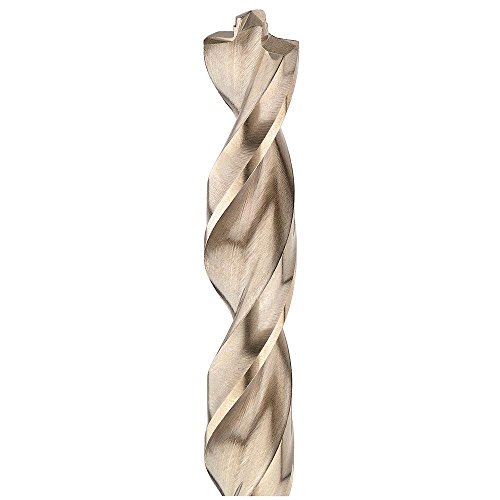
DEWALT DW1932 1/2-Inch Gold Ferrous Oxide Pilot Point Twist Drill Bit – Expert Review
Introduction
As an expert in the field, I have had the opportunity to test and evaluate various drill bits, and one product that stood out to me is the DEWALT DW1932 1/2-Inch Gold Ferrous Oxide Pilot Point Twist Drill Bit. In this review, I will provide an objective analysis of its features, compare it with similar products in the market, and highlight its pros and cons.
Design and Durability
The DEWALT DW1932 is designed with the user in mind, making it suitable for a wide range of applications. Its pilot point tip starts on contact, ensuring clean and accurate holes while reducing lock-up on breakthrough. This feature alone sets it apart from other drill bits in the market. Additionally, the tapered web provides greater durability, reducing the chances of breaking during use. The no spin shank eliminates the frustration of bit spinning in the chuck, making it a user-friendly option.
Performance and Versatility
One of the standout features of the DEWALT DW1932 is its ability to drill through various materials with ease. Users have reported successful drilling through metal, steel doors, plate steel, and even cast iron. This versatility makes it a reliable choice for professionals and DIY enthusiasts alike. The drill bit’s performance is further enhanced by its ability to create large spirals of steel, resulting in efficient drilling.
Pros and Cons
While the DEWALT DW1932 offers impressive performance and durability, it’s important to consider both its pros and cons. On the positive side, users praise its sharp point, which prevents wandering during drilling and ensures accurate results. The bit’s ability to cut through various materials, including metal, is also highly appreciated. However, some users have reported that the bit can become dull relatively quickly, especially after drilling multiple holes in tough materials. Sharpening the bit back to its original specs may require special equipment.
Q: Is the DEWALT DW1932 suitable for heavy-duty use?
A: Yes, the DEWALT DW1932 is designed to withstand even the toughest jobs. It has been proven and tested for durability and function in real-world conditions.
Q: Does the DEWALT DW1932 require a pilot hole?
A: No, the pilot point tip eliminates the need for a separate pilot hole. It starts on contact and reduces lock-up on breakthrough.
Q: Can the DEWALT DW1932 drill through steel doors?
A: Yes, the DEWALT DW1932 is capable of drilling through steel doors. Users have reported successful results when widening existing peepholes for installations like ring peephole cameras.
Q: How does the DEWALT DW1932 compare to other drill bits?
A: The DEWALT DW1932 stands out with its pilot point tip, which provides clean and accurate holes. Its durability and versatility make it a reliable choice for various applications. However, users should be aware that the bit may become dull faster compared to some other options on the market.
Specifications: